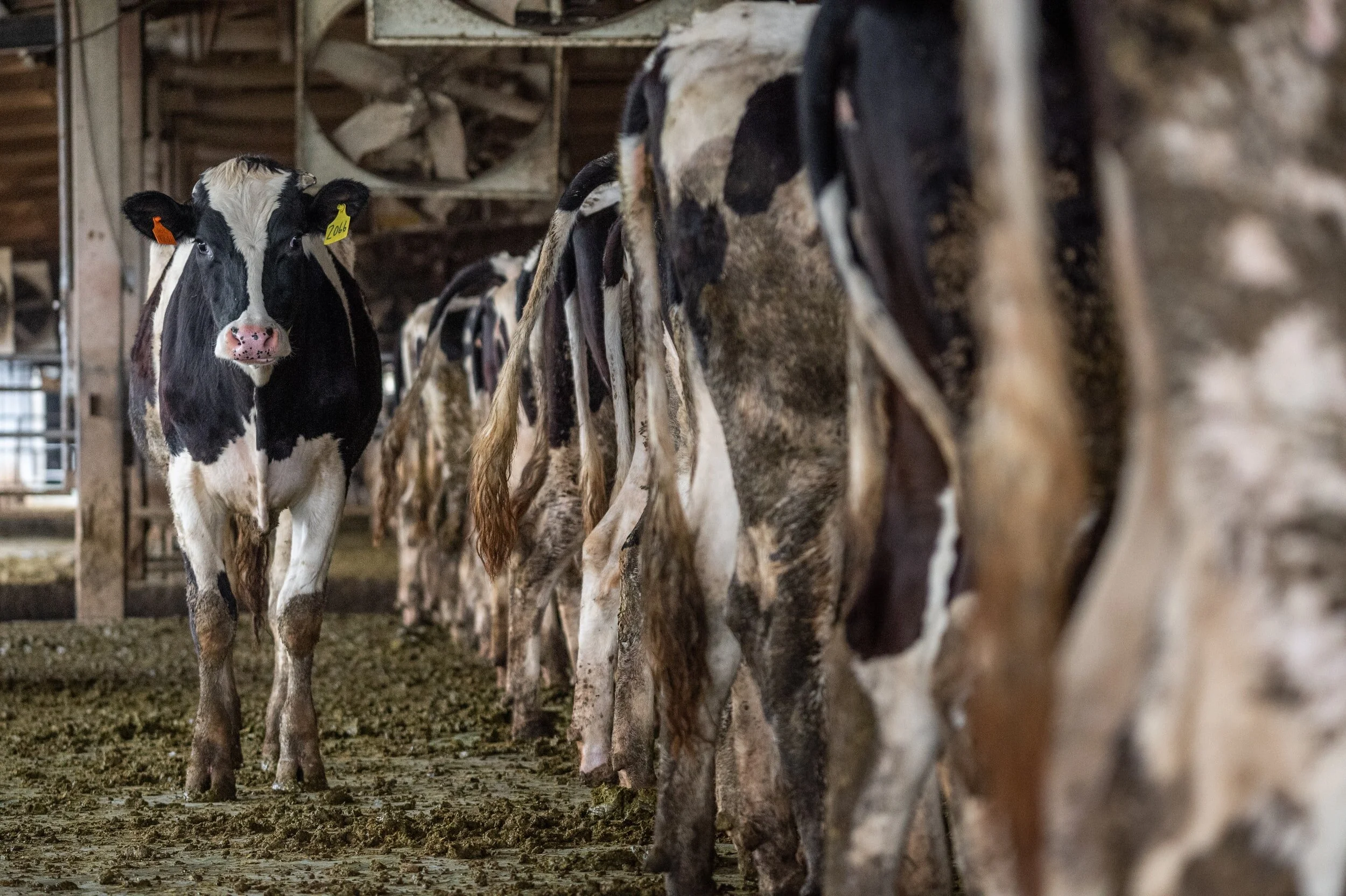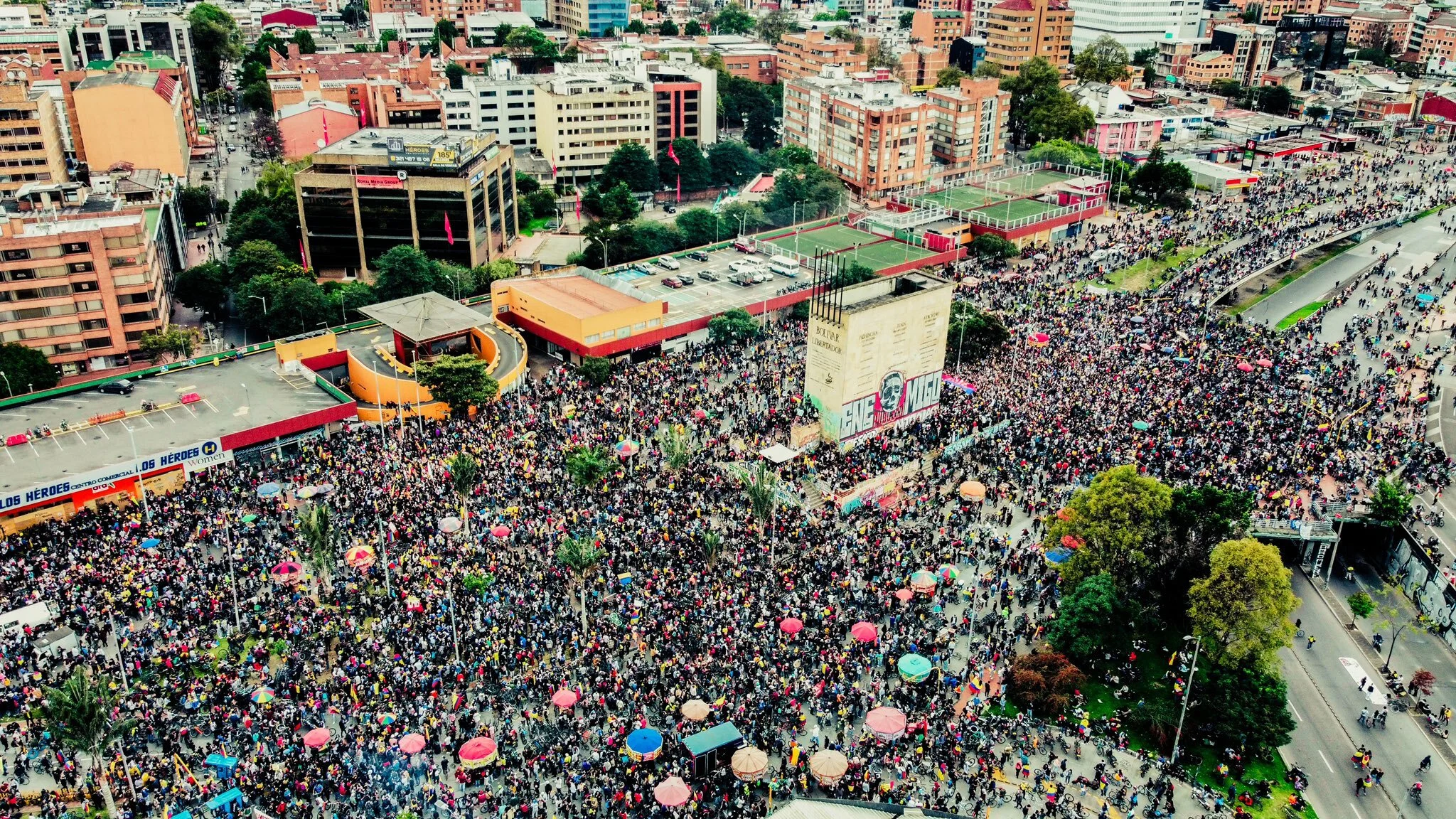Corporate Accountability Lab (CAL) is excited to announce that on October 27, 2021 we filed suit against Hershey and the certification scheme Rainforest Alliance in a consumer protection case in Washington, D.C. Superior Court. CAL, as the plaintiff in the case, is suing the defendants -- Hershey and Rainforest Alliance -- for false and deceptive marketing representations on certain Hershey chocolate products. We are bringing suit under the Washington, D.C. Consumer Protection Procedures Act (“CPPA”), a consumer protection statute that allows public interest organizations like CAL to sue on behalf of the general public.
Corporate Accountability Lab Stands in Solidarity with Palestinian Civil Society
On October 19, 2021, the Israeli government outlawed and criminalized six Palestinian human rights organizations by deeming them “terrorist organizations.” This designation by the Israeli government essentially criminalizes these groups, allows the Israeli government to shut down the organizations’ offices, arrest staff members, and seize the organizations’ property. It also prohibits funding or even publicly supporting these groups. Corporate Accountability Lab stands in solidarity with these six human rights organizations and joins human rights organizations in the United States and world in denouncing the Israeli government’s civil society crackdown.
CAL finds evidence of child labor on Rainforest Alliance certified farms
In 2001, eight cocoa and chocolate companies came together to sign the Harkin-Engel Protocol, a voluntary agreement in which companies promised to eradicate child labor in the West African cocoa industry by 2005. Twenty years after the agreement went into effect, an estimated 1.56 million children work in the cocoa industry in Cote d’Ivoire and Ghana, which produce about two-thirds of the world’s cocoa. About 1.48 million of these children are engaged in hazardous child labor, which includes using a machete, carrying heavy loads -- often of cocoa beans -- and spraying pesticides.
Advancing Ethical Licensing and the Launch of Hippocratic License 3.0
CAL, in partnership with the Organization for Ethical Source (OES), has launched Hippocratic License 3.0 (HL 3.0), an ethical open source software license designed to: (1) offer software developers a license that clearly defines what kind of behavior a potential licensor must adhere to, by basing the ethical standards section of HL 3.0 in international human rights norms; (2) extend software developers the ability to add additional ethical standards clauses to further champion a variety of specific human rights causes; (3) provide software developers the most enforceable ethical open software license to date; and (4) create an opportunity for victims of human rights violations to seek legal remedy through a private right of action.
Illegal Timber from the Amazon Rainforest: What the US Got Right and How to Do Better
Beautiful cabinets and fancy doors made of timber from the Peruvian Amazon decorate the homes of people in 35 countries. This timber likely comes from illegal deforestation of the Amazon rainforest, which in turn impacts the environmental crisis. For nearly a decade, 130 forest authorities signed more than 1,000 forest management plans that included false information to circumvent the law and extract timber from prohibited forests, national parks, and indigenous community protected lands in Peru.
Urgent Call for Accountability in Colombia: New Death Threats Against Jani Silva
Three months ago, the members of the Corporate Liability and Sustainable Peace (CLASP) Lab drafted an open letter expressing our deep concern for Jani Silva's life and safety. We denounced death threats that Jani had received from the criminal armed group Comando de la Frontera in connection to her work as an environmental defender of the Campesino Reserve of the Amazon Pearl of Putumayo, Colombia. Today, we write again after Jani and her family were forced to flee the territory she has defended for decades. She received information about an imminent assassination plan against her.
Negotiations for the New UN Ocean Treaty: Why the Treaty Must Include Corporate Environmental and Human Rights Obligations
A small group of corporations play an outsized role in exploiting marine animals in international waters. Estimates suggest that only thirteen seafood corporations account for up to 40% of the largest and most valuable fish catches worldwide. So far, decades old management measures to regulate fishing in international waters have failed to stem fish population declines. Meanwhile, dangerous working conditions, forced labor, trafficking, and other human rights abuses are alarmingly common onboard fishing and cargo vessels.
CAL presenta amicus pidiendo que la Corte Suprema proteja la identidad de las victimas en Doe v. Chiquita
Corporate Accountability Lab presentó un memorial de amicus curiae solicitando a la Corte Suprema de Estados Unidos que conceda el certiorari en el caso, Doe v. Chiquita Brands International. El caso fue presentado por los familiares de sindicalistas, trabajadores del sector bananero, organizadores políticos, activistas sociales y otras personas atacadas y asesinadas por las Autodefensas Unidas de Colombia (AUC), una organización paramilitar de derecha en Colombia financiada en parte por Chiquita, la empresa bananera multinacional con sede en Estados Unidos. Los demandantes han interpuesto una querella contra Chiquita, alegando que Chiquita fue cómplice de las AUC financiándolas.
Honoring Berta Cáceres and her Vision for Indigenous Liberation in Honduras
Berta Cáceres Flores is the “seed of freedom” for her indigenous Lenca people of Honduras and all who pay tribute to her legacy by continuing her struggle for indigenous liberation. Cáceres’s assassination near midnight on March 3, 2016 was orchestrated by employees at the hydroelectric dam company Desarrollos Energéticos (DESA), after Cáceres and her community disrupted the dam’s construction on their ancestral lands and sacred Gualcarque river. Just this week, over five years later, the former head of DESA was convicted for her murder.
CAL Files Amicus Brief Asking Supreme Court to Protect Victims' Identities in Doe v. Chiquita
Corporate Accountability Lab filed an amicus brief on behalf of a group of human rights organizations, asking the US Supreme Court to grant certiorari in the case Doe v. Chiquita. The case was brought by the family members of trade unionists, banana workers, political organizers, social activists, and others targeted and killed by the United Self-Defense Group of Colombia (AUC), a right-wing paramilitary organization in Colombia funded in part by Chiquita.
CAL and IRAdvocates Provide New Evidence of Forced Child Labor in the Cocoa Sector in Wake of Supreme Court Decision in Nestle v. Doe
On June 24, 2021, Corporate Accountability Lab (CAL) and International Rights Advocates (IRAdvocates) submitted new evidence of forced child labor and trafficking in the Ivorian cocoa sector to Customs and Border Protection (CBP) under Section 307 of the Tariff Act. This evidence was submitted as a supplement to a 307 petition we filed almost a year and a half ago, in February 2020. In both petitions we request that CBP issue a Withhold Release Order (WRO) to stop the importation of all cocoa and chocolate produced with forced child labor from Cote d’Ivoire.
CBP Issues WRO Targeting Silica-Based Products Used in Solar Panels By Hoshine Silicon Industry Co., Ltd.
On June 24, 2021, US Customs and Border Protection (CBP) issued a Withhold Release Order (WRO) stopping imports into the US of silica-based products produced in whole or in part by the Chinese company Hoshine Silicon Industry Co., Ltd., located in the Xinjiang Uyghur Autonomous Region (XUAR). The WRO comes as a result of CBP’s findings that Hoshine uses forced labor in its silica-based product factories, building upon a wave of recent reports of human rights abuses in corporate supply chains in Xinjiang.
COCOBOD’s Unrealised Potential: Promoting Human Rights, Welfare, and the Environment in Ghana’s Cocoa-Growing Communities
On June 17, 2021, Corporate Accountability Lab joined the University of Ghana School of Law, the Northwestern Pritzker School of Law Center for International Human Rights, and SEND Ghana to launch the report, COCOBOD’s Unrealised Potential: Promoting Human Rights, Welfare, and the Environment in Ghana’s Cocoa-Growing Communities.
Supreme Court Upholds Intolerable Status Quo in Nestlé USA v. Doe, Rejecting Claims of Trafficked Children
On June 17, 2021, the US Supreme Court issued its decision in Nestlé USA v. Doe, a case brought on behalf of six Malian plaintiffs who had been trafficked and forced to work on cocoa farms in Cote d’Ivoire. The former forced child laborers allege that they had been tortured and enslaved. They further alleged that Nestlé USA and Cargill aided and abetted the harms against them by providing financial and technical support for exclusive purchasing rights to farms it knew or should have known exploited children.
Shell Shocked: Dutch Court Rules that Shell Must Reduce CO2 Emissions by 45% by 2030
While 100 companies are responsible for nearly three-fourths of global emissions contributing to climate change, governments have historically lacked the tools--or political will-- to effectively mitigate corporate contributions to climate change, even those that fossil fuel companies make.
However, a new ruling by a Dutch court may force change for corporate accountability on climate change.
El legado de Valmore Locarno, Víctor Orcasita y Gustavo Soler: 20 años en búsqueda de verdad y justicia en un entorno de conflicto armado
En marzo de 2021 se cumplieron 20 años de los asesinatos de los líderes sindicales Valmore Locarno y Víctor Orcasita a manos de miembros paramilitares colombianos de las Autodefensas Unidas de Colombia (AUC), supuestamente financiados, en parte, por la empresa de carbón Drummond Co., la cual tiene su casa matriz en Alabama, Estados Unidos.
Fair Trade USA & The Failures of Eco-Social Certification
When we choose to purchase a product that bears a certification label-- like a yogurt with a fair trade stamp-- we may assume that the workers and environment along the supply chain were respected in the product’s development. But the social auditing and certification industry behind such certifications do not always have the impacts we might think. Fair Trade USA’s recently-launched Certified Dairy label is an example of how social auditing and certification programs that are not worker-driven all too often end up as greenwashing and/or fairwashing schemes and fail the workers they are meant to protect.
Why a Whole Country Went on Strike - And is Still Striking
Although the Colombian government’s proposed tax reform ignited the protests that started all over the country on April 29, the motives behind the ongoing national strike are diverse. This is why, when President Duque announced that he was going to withdraw the tax reform from Congress five days after protests began, the strike didn’t stop.
Hamida Begum v. Maran (UK) Limited: Shipbreaker’s Death Turning the Tide in Third-Party Liability Claims Under English Law
While large shipping vessels are meant to last for years, all vessels eventually reach the end of their working lives. These vessels must then be dismantled, a process known as shipbreaking. Maran, a UK-based company, sold a shipping vessel to a demolition cash buyer to have its shipping vessel demolished. This post focuses on a decision issued by the Court of Appeals for England and Wales on March 20, 2021, against Maran’s appeal of the trial court’s decision denying Maran’s application for reverse summary judgment.
In Support of Environmental & Human Rights Defender Jani Silva
Colombian Human Rights and Environmental Defender Jani Rita Silva and her organization, the Asociación de Desarrollo Integral Sostenible Perla Amazónica (ADISPA), have recently received threats challenging their work to defend the Campesino Reserve of the Amazon Pearl of Putumayo, Colombia from corporate abuse.

























